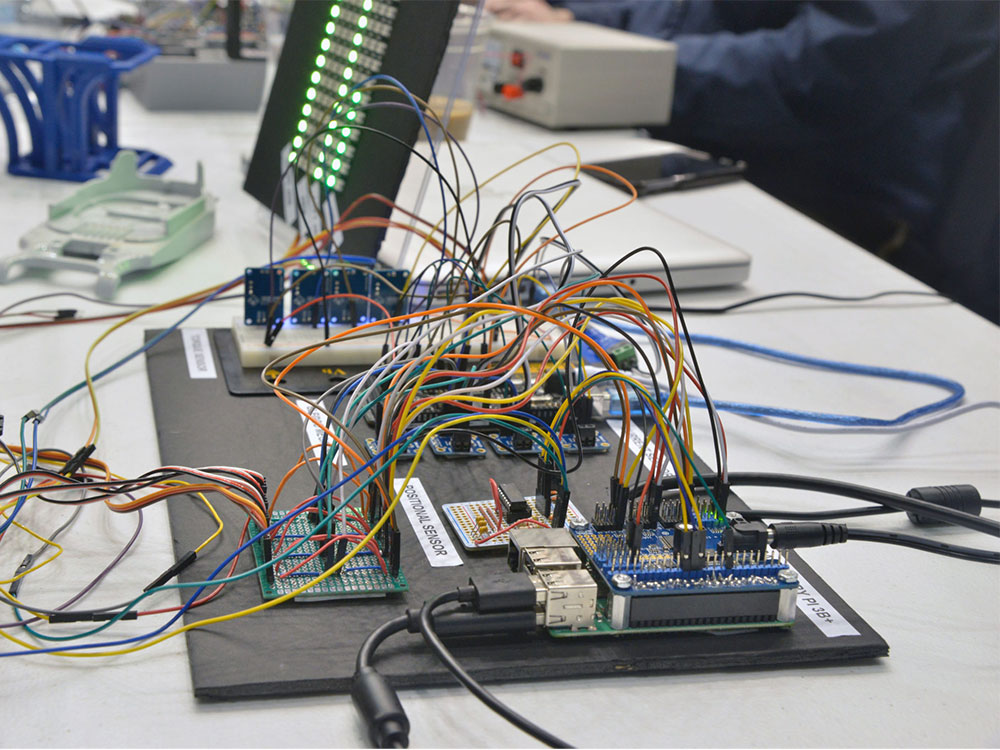Your guide to the opportunities, skills, and education needed to succeed in electrical engineering.
Introduction
Electrical engineering is one of the most dynamic and rewarding fields of study, offering diverse career opportunities and challenges. For those who are interested in technology, problem-solving, and innovation, pursuing a career in electrical engineering can open doors to various high-demand job roles across industries. Whether you're considering online or in-person education to prepare for this field, Al Mithaq Institute offers comprehensive and accredited programs that can set you on the path to success. This article provides a detailed guide to what you can expect from a career in electrical engineering and how Al Mithaq Institute’s educational programs can help you achieve your professional goals.
1. Understanding Electrical Engineering
Electrical engineering is a broad discipline within the engineering sector that deals with the study and application of electricity, electronics, and electromagnetism. Professionals in this field design, develop, and test electrical equipment such as electric motors, radar systems, communications equipment, and power generation systems.
Key Concepts in Electrical Engineering:
- Power Systems: These involve the generation, transmission, and distribution of electrical energy.
- Control Systems: This includes the study of systems that manage, command, direct, or regulate behaviors of other devices or systems.
- Electronics: The design and development of circuits used in various devices, from consumer electronics to industrial equipment.
- Telecommunications: Involves the transmission of information through different mediums, including wires, radio, or optical fibers.
Electrical engineering is integral to modern technological advancements, and the demand for skilled professionals is on the rise.
2. Career Opportunities in Electrical Engineering
The career prospects in electrical engineering are vast and varied, offering multiple paths in different industries. Below are some of the most common career options for electrical engineers:
a. Power Engineer
Power engineers focus on the generation, transmission, and distribution of electrical power. They work with power plants and electrical grids to ensure energy is delivered efficiently and safely.
b. Electronics Engineer
Electronics engineers design and develop electronic devices, circuits, and systems used in communications, computing, and consumer electronics. They are responsible for creating the devices we use daily, from smartphones to medical devices.
c. Control Systems Engineer
Control systems engineers design systems that control and automate processes, which are crucial in manufacturing, robotics, and aerospace industries. They apply algorithms to regulate variables in systems to ensure optimal operation.
d. Telecommunications Engineer
Telecommunications engineers work with the transmission of data and information through various channels such as satellite, fiber-optic cables, and wireless networks. They design and implement communication systems that keep people connected globally.
e. Electronics and Communications Engineer
Specializing in the development of communication systems, electronics, and signal processing, these engineers play a vital role in the world of modern telecommunications.
f. Renewable Energy Engineer
With the growing importance of sustainability, renewable energy engineers design and manage systems that harness renewable sources such as solar, wind, and hydroelectric power. They work on electrical systems that are essential to sustainable energy solutions.
g. Research & Development Engineer
Electrical engineers in R&D are responsible for pushing the boundaries of technology, designing and testing new systems, products, and processes that enhance or revolutionize existing technology.
3. Skills Required for Success in Electrical Engineering
To thrive in electrical engineering, professionals must possess a combination of technical, analytical, and interpersonal skills. Here are some key skills that are essential:
a. Strong Mathematical Foundation
Electrical engineering requires advanced knowledge in mathematics, particularly calculus, linear algebra, and differential equations. These mathematical tools are essential for analyzing electrical circuits, power systems, and control mechanisms.
b. Problem-Solving and Analytical Thinking
Engineers are often tasked with solving complex problems, whether designing a new circuit or improving an existing system. Critical thinking, creativity, and the ability to troubleshoot are vital skills.
c. Knowledge of Circuit Design and Analysis
Electrical engineers need to be proficient in the design and analysis of electrical circuits, which is a core aspect of the profession. Understanding how components like resistors, capacitors, and transistors work together is fundamental.
d. Understanding of Electrical Safety
Safety is a primary concern for electrical engineers, particularly those working with high-voltage systems. Proper safety protocols and an understanding of the potential hazards associated with electricity are necessary skills.
e. Communication and Teamwork
Electrical engineers often work in teams and must be able to communicate complex ideas and findings effectively. Being able to collaborate with colleagues, clients, and other engineers is key to project success.
f. Computer Programming and Software Skills
As technology evolves, so does the role of programming in electrical engineering. Engineers today are expected to be proficient in software tools for circuit simulation, data analysis, and automation, such as MATLAB, Python, and CAD software.
4. Education Pathways for Electrical Engineering Careers
To pursue a career in electrical engineering, a solid educational foundation is necessary. The first step is typically obtaining a degree in electrical engineering, either through traditional on-campus programs or through online courses.
Typical Educational Pathway:
- Bachelor’s Degree in Electrical Engineering: The foundational degree for aspiring electrical engineers, typically requiring four years of study. Students will gain theoretical knowledge and practical skills in areas like circuit analysis, digital systems, and electrical machinery.
- Master’s Degree in Electrical Engineering: This advanced degree offers specialized knowledge in areas like control systems, communications, or energy systems. It’s ideal for those wishing to pursue leadership roles or advanced research positions in the field.
- Certifications and Specializations: After obtaining a degree, engineers may choose to enhance their expertise with certifications in specific areas, such as control systems, power systems, or renewable energy. Al Mithaq Institute offers professional training programs that can help engineers specialize and stay ahead in their careers.
- Doctoral Programs (PhD) in Electrical Engineering: For those interested in teaching or conducting high-level research, a PhD offers the opportunity to develop new technologies or systems that will shape the future of electrical engineering.
5. How Al Mithaq Institute Supports Your Career in Electrical Engineering
Al Mithaq Institute offers a range of diplomas and certifications designed to provide in-depth knowledge and hands-on skills that align with industry demands. Our programs in electrical engineering and related fields ensure that students are equipped with the technical proficiency and practical experience needed to excel.
Why Choose Al Mithaq Institute?
- Accredited Programs: Our diplomas and certifications are recognized locally and internationally, providing credibility to your career prospects.
- Flexible Learning: Whether you prefer online learning or in-person classes, Al Mithaq Institute offers programs that allow you to study at your own pace while receiving top-quality education.
- Experienced Faculty: Our instructors bring over a decade of professional experience in electrical engineering and related disciplines, combining academic excellence with real-world applications.
- Comprehensive Curriculum: Our courses cover essential topics such as power systems, circuit design, control systems, and telecommunications, providing you with a solid foundation for your career.
- Student Support: We offer personalized support to help students succeed, with dedicated faculty and access to a range of resources.
6. Future Trends in Electrical Engineering
The field of electrical engineering is constantly evolving, driven by technological advancements and societal needs. As industries such as renewable energy, automation, and artificial intelligence grow, so too does the demand for skilled electrical engineers.
Emerging Areas in Electrical Engineering:
- Renewable Energy: As the world shifts towards sustainable energy sources, electrical engineers will play a key role in designing and optimizing renewable energy systems.
- Internet of Things (IoT): The IoT revolution is creating new opportunities for electrical engineers to develop smart devices and systems that connect and communicate.
- Artificial Intelligence (AI) and Robotics: AI and robotics are shaping industries such as manufacturing and healthcare. Electrical engineers will be at the forefront of creating systems that enhance automation and intelligent decision-making.
Conclusion
Electrical engineering offers a vast array of career opportunities across diverse industries. With a solid educational foundation and specialized training, professionals can thrive in various high-demand roles. Al Mithaq Institute provides the flexibility and expertise needed to excel in this exciting field. Whether you are just starting out or looking to specialize further, our accredited programs are designed to equip you with the knowledge and skills to succeed. Explore our courses and get started on your journey toward a rewarding career in electrical engineering today.






